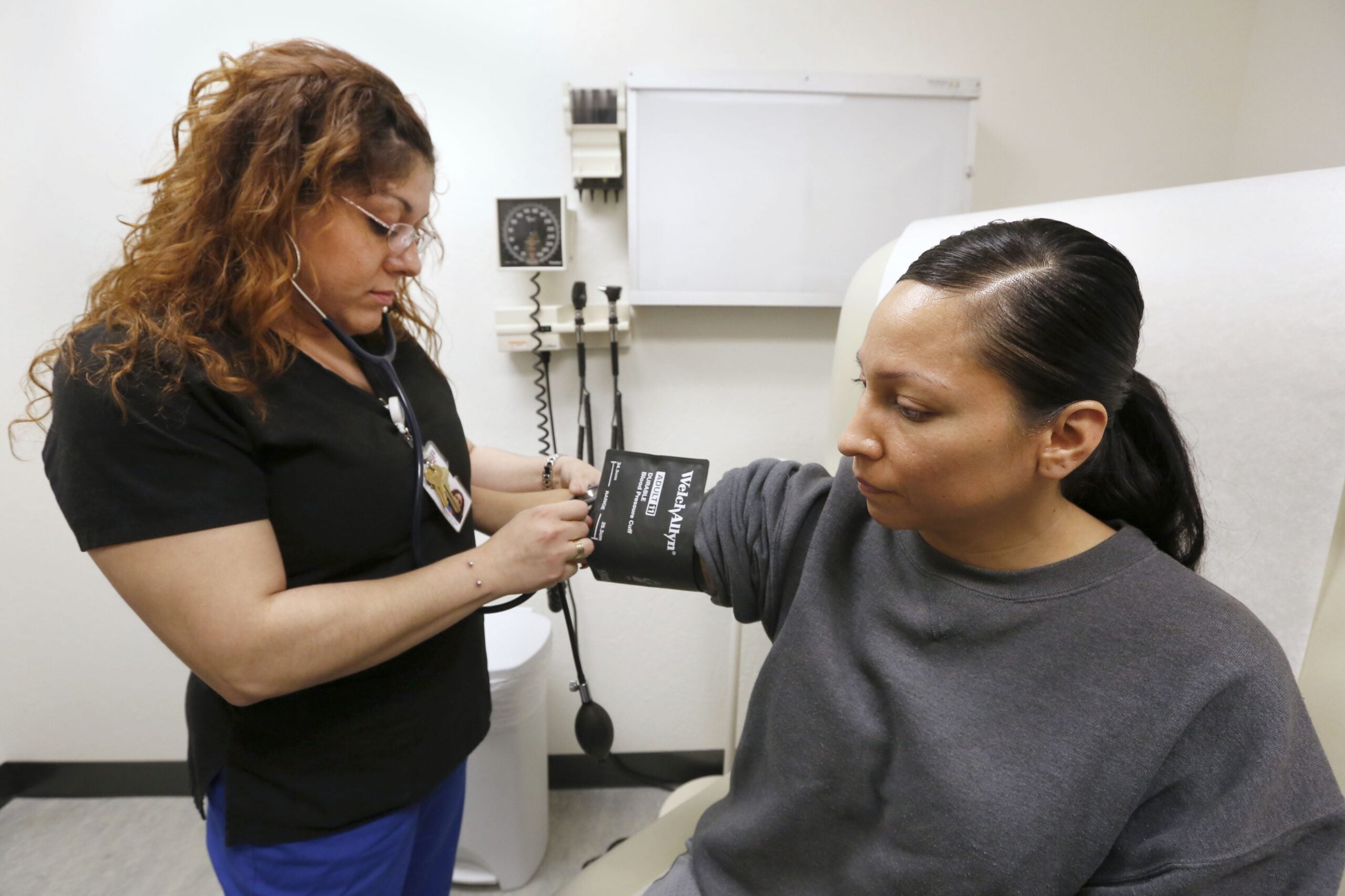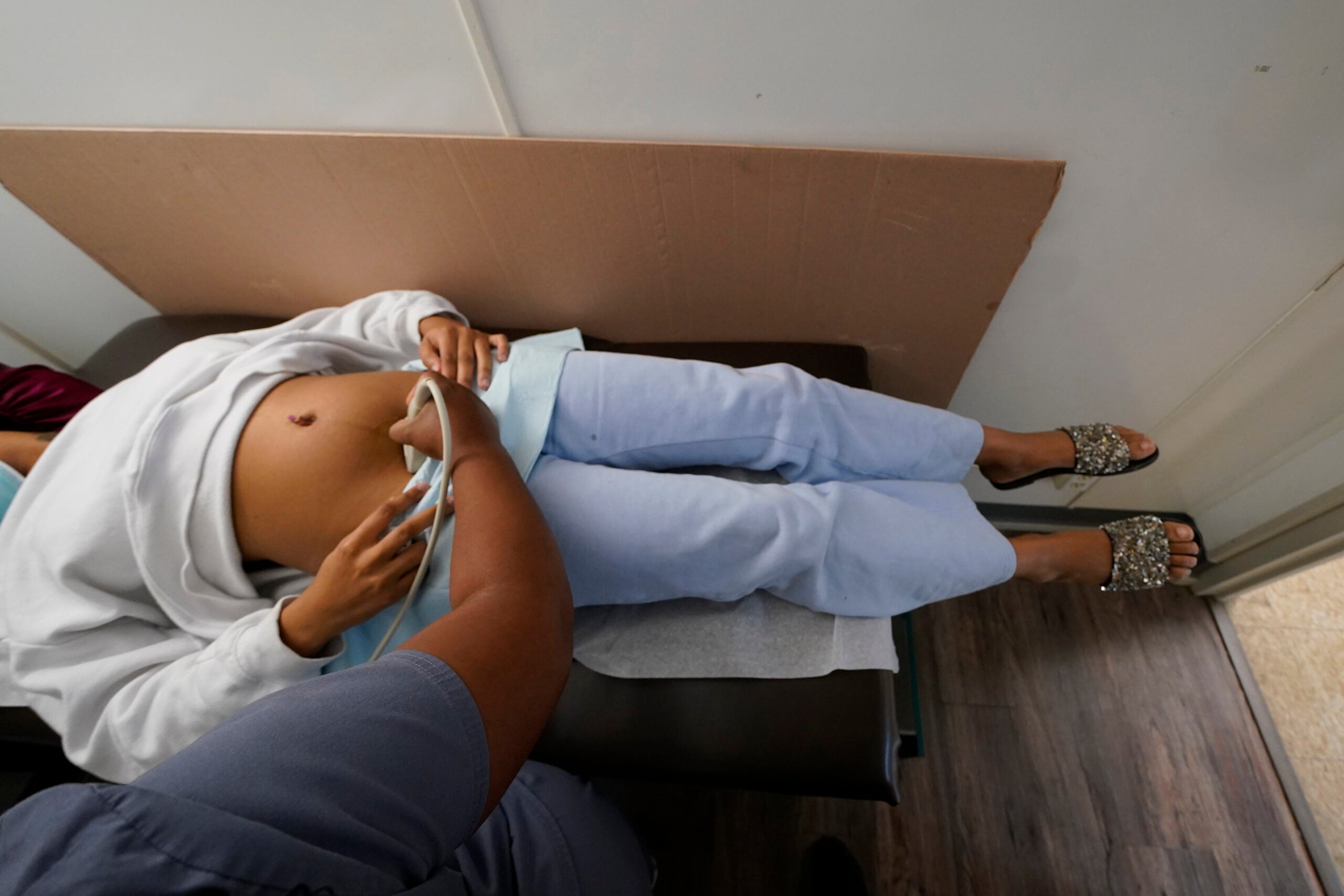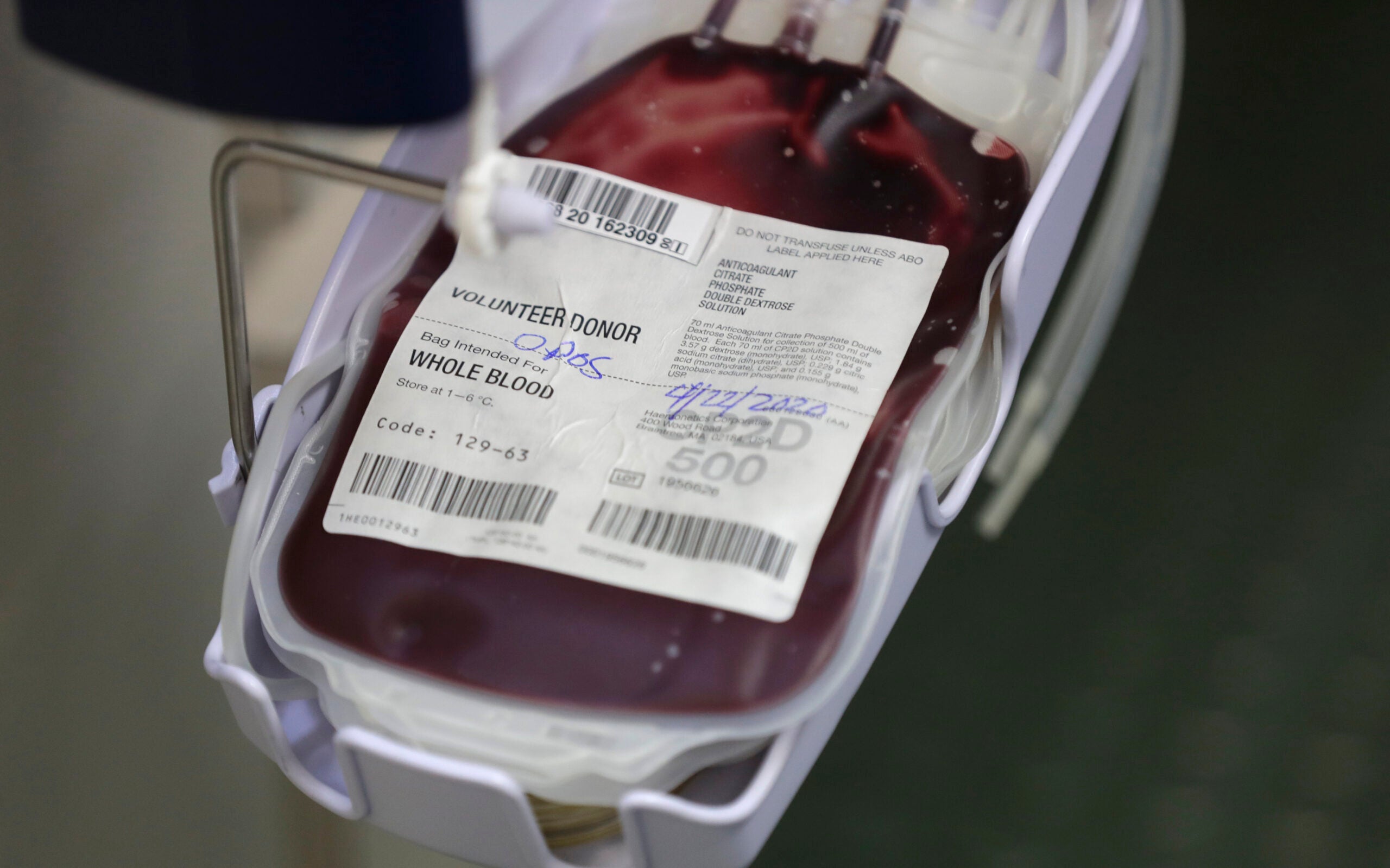UW Health and UnityPoint Health-Meriter are expanding an at-home monitoring program to help new mothers better manage high blood pressure.
The Staying Healthy After Childbirth program sends a special blood pressure monitor home with new mothers who develop high blood pressure, or hypertension, during pregnancy or after childbirth.
The monitor sends blood pressure readings to Meriter hospital staff, who can work with patients to prescribe blood pressure medication or alert them when they need to be seen by their provider for more serious symptoms.
Stay informed on the latest news
Sign up for WPR’s email newsletter.
Since 2019, more than 7,000 patients have participated in the program.
Using new federal funding, the University of Wisconsin-Madison’s Prevention Research Center will expand the program through partnerships with community providers in Dane and Milwaukee counties. The research project, which is funded by the Centers for Disease Control and Prevention, is aimed at addressing maternal and child health disparities in Wisconsin.
Nationally, the rate of pregnant people who develop high blood pressure has risen in the last two decades. Dr. Kara Hoppe, UW Health maternal fetal medicine specialist who leads the program, said the condition affects around 30 percent of patients who give birth in the region.
“These (conditions) can become critical or dangerous very quickly, or they may be more subtle,” Hoppe said. “People may not have symptoms and present (with hypertension) at the end of pregnancy or postpartum.”
She said hypertension after childbirth can lead to stroke or damage to organs like the kidneys, brain and eyes.
Jill Densen, director of the Prevention Research Center, said hypertension can be “a silent killer” for mothers who are trying to recover physically while also caring for an infant.
“You tend to put your own health needs on the back burner because you’re taking care of a newborn and all of the other responsibilities that you have,” she said.
Denson, who serves on the state’s Maternal Mortality Review Team, said the at-home monitoring program can be empowering, especially for Black women. These patients face maternal mortality rates three to four times higher than non-Black women in the state, and Denson said hypertension is the number one cause of death for Black mothers.
“Unfortunately, across this country, there’s been a problem of Black women not being heard,” she said. “This gives them concrete information to help advocate for themselves and for family members to advocate for them.”
The new effort will partner with doulas and community clinics to make the program more accessible. Denson said these providers can be easier to reach for people with limited transportation and those who are intimidated or distrustful of the health care system.
She hopes the program can eventually be expanded to other areas of the state that struggle with health disparities and rural areas that have few OBGYNs.
Wisconsin Public Radio, © Copyright 2025, Board of Regents of the University of Wisconsin System and Wisconsin Educational Communications Board.







